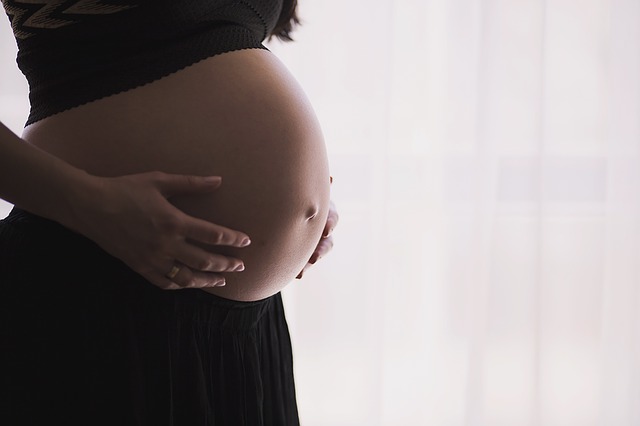A guest post by Heidi Hayes, Executive VP of Donor Egg Bank, a California Cryobank company
Infertility affects about 10 percent of women (6.1 million) in the US between the ages of 15 and 44, according to the CDC. At Donor Egg Bank, we help families find a path to parenthood when infertility has made it difficult to conceive naturally.
If you have considered using donor eggs and want to know more about the process – from selecting a donor to embryo implantation – I encourage you to visit Donoreggbankusa.com to see if it’s the right step for you.
If you’re still trying to decide if using donor eggs is the right option for you, I hope this blog post helps you learn a little more about the process.
No matter what path you choose, it’s best to know your options, familiarize yourself with the donor selection process, and communicate your expectations with everyone involved before embarking on your incredible journey. Here are some of the main things to consider or know:
Be Open with Your Partner
Open lines of communication between you and your partner have probably been a major factor in your decision to explore donor eggs as an alternative method to conceiving a child. Prior to beginning the IVF process, couples should continue to take time to talk through their expectations with each other, an infertility counselor, and their doctor. Starting a family through a non-traditional path can be an overwhelming concept; but with the right support, it can be a hopeful and positive experience for all involved.
It’s important to understand women who begin this process may feel bitterness toward their husbands or partners who will have a biological connection to a child conceived through donor egg IVF. It’s a natural emotion, and talking with your partner or an infertility counselor will help air these concerns and feelings. Just remember: nothing can compare to feeling your baby move for the first time, catching the first glimpse of your baby through an ultrasound, or feeling your baby’s tiny hiccups in your womb. The strong bond of the physical connection between mother and baby will be an incredible source of relief and joy for any soon-to-be mother.
Furthermore, it may bring a mother using donor eggs peace of mind that she will have a role in the growth of her baby. Once a woman becomes pregnant, her uterus produces a type of molecule that plays a role in the genetic development of her growing fetus.
Choose a Donor That’s Right for You
Make sure to discuss any physical features you may want your child to have with your partner. This may seem like a minor consideration, but it’s important to be open about these wishes while keeping a realistic mindset. Just as nothing is guaranteed with a traditional pregnancy, physical features can’t be guaranteed through selecting an egg donor. However, you can select a donor who most closely carries your favorable traits. All donors must go through an intense screening and approval process. Whether nationality, hair color, height, or eye color are important to you, these options are readily available when selecting your perfect fit.
Fresh or Frozen Donor Eggs: What’s Best for You?
Most high-performing egg banks and fertility clinics boast a frozen donor egg IVF success rate nearly matching – and sometimes exceeding – the success of donor egg IVF with fresh eggs. Frozen eggs provide a viable option for many women. Plus, there are many additional benefits to selecting frozen eggs.
If you select fresh eggs, menstrual cycle synchronization between you and your donor must take place, which can lengthen the process and increase costs. Additionally, the donor pool for fresh donor eggs is much smaller, and most programs rarely give patients any type of guarantee or refund.
By selecting frozen donor eggs, you have more control over when your IVF cycle begins, and can make your selection from a national pool of donors. Through frozen donor eggs, there is more opportunity to ensure the right physical features are available when choosing a donor.
One of the most important factors to consider when selecting fresh versus frozen donor eggs is the cost. As previously mentioned, fresh eggs require menstrual cycle synchronization, which can cause delays. The total cost of a fresh cycle can be upwards of $35,000-$50,000 per IVF cycle. On the other hand, frozen donor eggs – per IVF cycle – can be quicker and half the cost.
A Unique Path to Parenthood
Hei di Hayes is the Executive Vice President of Donor Egg Bank, a California Cryobank Company. She has more than 20 years of healthcare experience and has worked extensively in the field of reproductive endocrinology. Having been unsuccessful at traditional IUI and IVF treatments, Heidi personally understands the struggles of infertility. After many years of trying to conceive, she ultimately built her family through adoption and donor egg treatment. She always believed that if she didn’t give up, her ultimate goal of becoming a parent would someday become a reality.
di Hayes is the Executive Vice President of Donor Egg Bank, a California Cryobank Company. She has more than 20 years of healthcare experience and has worked extensively in the field of reproductive endocrinology. Having been unsuccessful at traditional IUI and IVF treatments, Heidi personally understands the struggles of infertility. After many years of trying to conceive, she ultimately built her family through adoption and donor egg treatment. She always believed that if she didn’t give up, her ultimate goal of becoming a parent would someday become a reality.
Let’s connect on social media, too:
Mumbling Mommy on Facebook
Mumbling Mommy on Twitter
Mumbling Mommy on Pinterest
Category: HealthTags: egg donation









